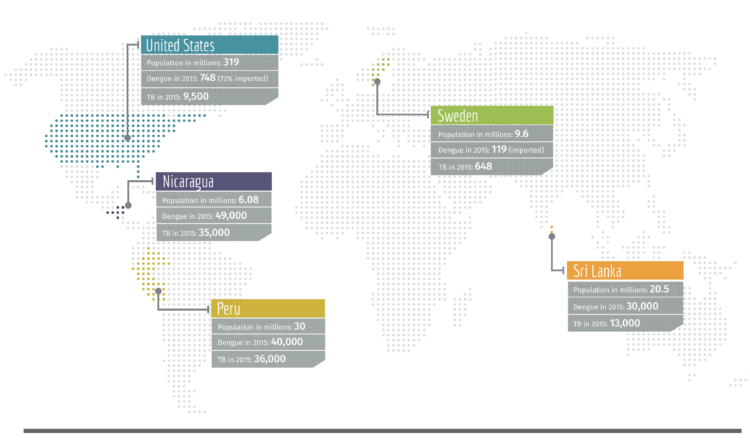An international team led by LJI investigator Alessandro Sette, Dr. Biol. Sci., characterizes the immune response to dengue virus and Mycobacterium tuberculosis around the globe.
Dengue fever and tuberculosis pose serious health challenges: Aided by increasing globalization and climate change, dengue has reached Hawaii, Puerto Rico, and Florida while antibiotic-resistant strains of TB have become increasingly common. La Jolla Institute, a national leader in infectious disease research, was recently awarded an $18 million grant by the National Institutes of Health (NIH) to map how T cells, a type of white blood cells, respond to dengue virus and Mycobacterium tuberculosis (MTB).
Known as the Human Immune Profiling Consortium (HIPC), a global network of researchers will collect thousands of samples from infected or vaccinated people around the world (see map for details) and ship them to La Jolla Institute to be analyzed. The profiling effort specifically focuses on T cells, since they directly affect the development of immunity as well as the risk of severe diseases caused by these pathogens.

“By identifying the elements that make up an effective immune response, we will better understand what kind of immune responses vaccines should induce in order to be protective,” says Bjoern Peters, Ph.D., Associate Professor in the Division of Vaccine Discovery, who is spearheading the tuberculosis project in addition to performing the bioinformatics analysis for both pathogens. In addition to direct implications for vaccine development, the research will provide novel insights into T cell responses to viral pathogens in general, which will have fundamental impact on the understanding of human immunology.


